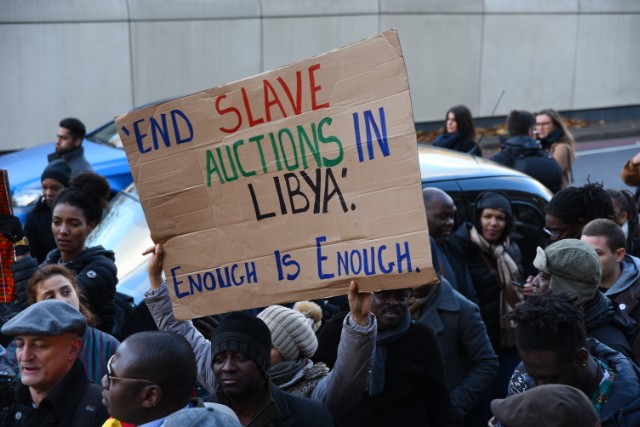ABIDJAN DECEMBER 1, 2017 (CISA) – The African Union, European Union and United Nations have agreed to an emergency plan to dismantle people-smuggling networks and repatriate stranded migrants in Libya.
The plan was announced during the just concluded fifth African Union – European Union (AU-EU) summit that took place on 29-30 November in Abidjan, Côte d’Ivoire, reported Reuters.
During the summit French President Emmanuel Macron said the plan included the establishment of an “operational task-force” composed of European and African police and intelligence services.
“The goal will be in very short order to be able to arrest identified traffickers, dismantle these networks and their financing which goes through banks and payments that in the region contribute … to sustaining terrorism,” he said.
According to President Macron, France would use its military presence in the region to help break up trafficking networks, but the plan would not involve sending French troops into Libya.
“On Libyan soil, it is now up to the Libyan government to decide in connection with the African Union,” he said adding, “It is important to preserve the sovereignty of Libya.”
The issue of abuse of African migrants heading for Europe became top of the agenda of the summit meant to focus on Africa’s youth. This followed images broadcasted by CNN early November that appeared to show migrants being auctioned off as slaves by Libyan traffickers, sparking outrage in Europe and anger in Africa.
European Council President Donald Tusk called the slavery reports “horrifying” during the opening ceremony of the summit on November 29.
The emergency plan came from a meeting of UN officials, EU leaders and government representatives from Chad, Niger, Morocco, Congo and Libya that was called by France on Wednesday.
In the plan the European Union, African Union and United Nations agreed to freeze assets and impose financial sanctions against known smugglers.
Libya’s government, which has promised to investigate reports of slave auctions, said it would grant UN agencies access to migrant camps in areas under its control.
Regional governments have also agreed to educate Africans about the dangers of migration, and there will be stronger coordination between security services across North, West and Central Africa to eradicate smuggling.
EU countries, meanwhile, will finance the repatriation of migrants from Libya, a process that is already being organised by the International Organisation for Migration.

